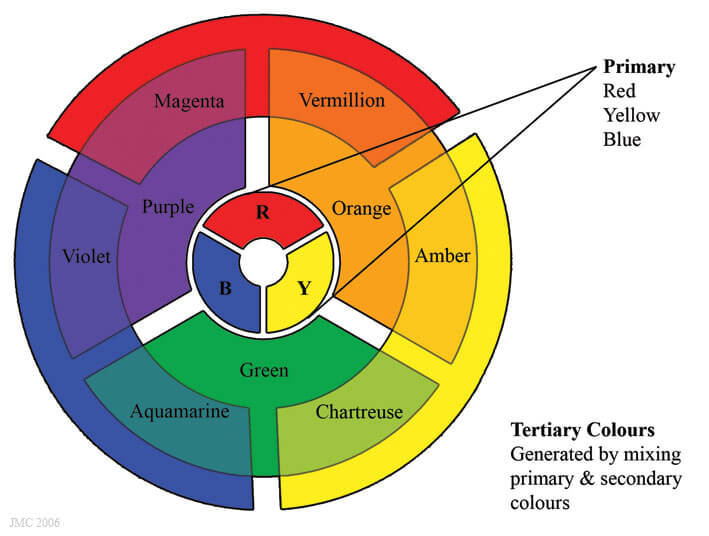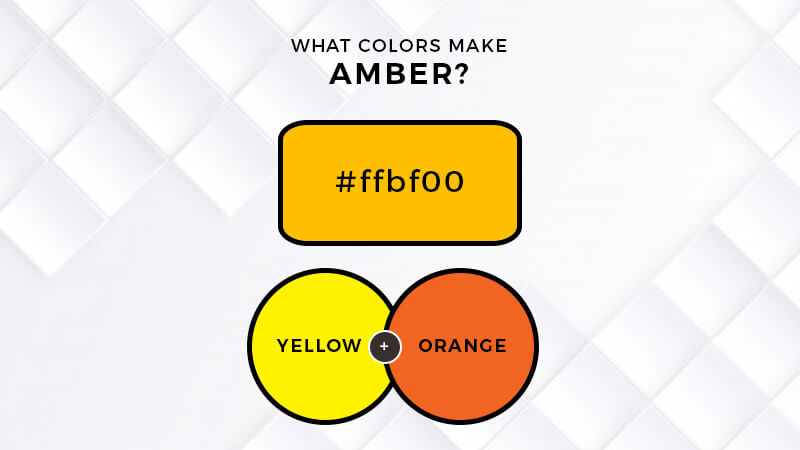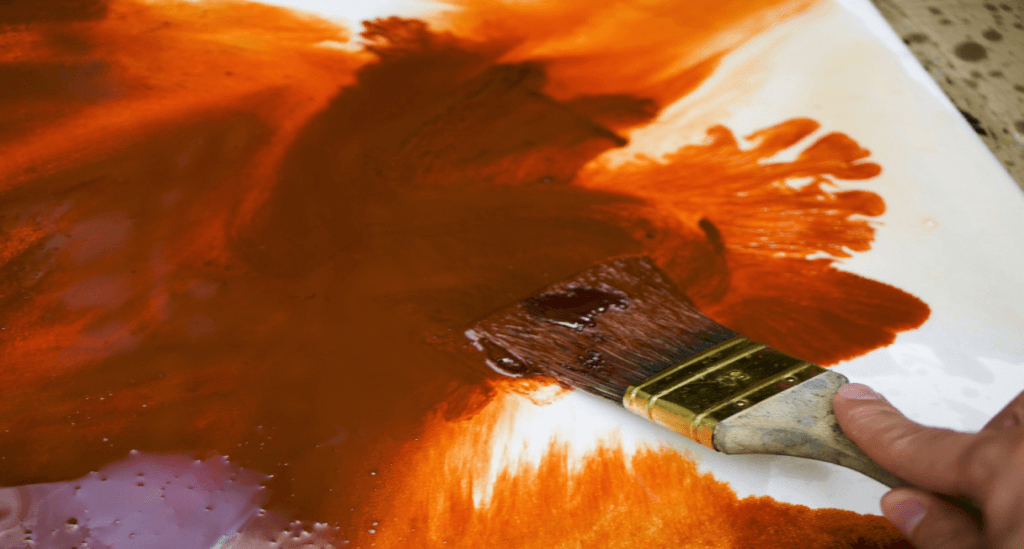What Colors Make Amber? What Two Colors Make Amber
Ah, amber. Hearing the word, an array of images already come to mind: the color of fresh honey, the picture of fall, the vibrancy of beer, the image of traffic lights – the list is endless!
For many, this bright, warm color that is halfway between yellow and orange suggests magic, energy, and spirituality.
With this, it is no wonder that artists and designers alike find interest in this vibrant color and try their best to incorporate it into their work.
If you’re among them, chances are you’re trying to replicate this yellowish-orange color in your own work. Whether it be for your art piece, interior decoration, or clothing design, applying the color amber can add more life and help enliven your creation.
To help you with that, we have prepared a brief guide on how you can create amber by mixing different colors together.
Read on.
The Color Wheel
Of course, before we go straight into discussing how to recreate the color amber, it is important to understand the basics of color mixing first.
As you might remember, there is what we call the “Color Wheel,” which acts as a tool to help artists and designers understand the relationship between colors and how one can properly use each of these pigments.
Within this spectrum, colors are mainly divided into three categories: primary, secondary, and tertiary.
To explain simply, the primary colors consist of red, yellow, and blue. As the name suggests, these are the basic ingredients from which all the other colors are derived.
Meanwhile, secondary colors are created when you mix two primary colors together. They consist of the colors green (blue + yellow), orange (yellow + red), and purple (blue + red).
Generally, these colors can be achieved by blending the two ingredients in a 1:1 ratio. However, depending on your anticipated output, you can manipulate how much of each color you’ll mix to achieve your desired shade.
Lastly, tertiary colors are those that are derived by mixing a primary and a secondary color together. In particular, they are the colors vermilion (orange + red), magenta (red + purple), violet (purple + green), teal (blue + green), chartreuse (green + yellow), and amber (yellow + orange).
Generally, although it might seem easy to recreate them, tertiary colors are quite challenging to make, especially since you’ll have to determine the appropriate portion for each ingredient.
With this, many people tend to experiment and go through a series of trial-and-error before arriving at the perfect shade they’re aiming for.
What Colors Make Amber
Now that you’ve had a brief refresher on the color wheel and the different types of colors, it may now be easier for you to determine how to recreate the color amber.
As stated earlier, amber is a tertiary color. This means it can be produced by mixing a primary color with a secondary one.
So what two colors mixed together make amber you wonder?
Specifically, in the red–yellow–blue system, which is used in traditional painting and interior design, one can arrive at the color amber by blending yellow and orange.
However, since can have about 400 different shades, you might want to experiment more by adding small amounts of red or blue to achieve a shade that draws closer to your desired result.
The Color Amber in Design
Given its warm and radiant color, amber is often associated with ancient energy, magic, spirituality, and happiness. In the early times, for example, the Greeks and Romans saw this color as a symbol of fertility and the color which the souls of animals turned into after their death.
To date, it is often used by artists and designers to suggest feelings of happiness and security. Since amber also connotes the color of leaves, bugs, gemstones, and honey, it is also often used to create an earthy palette that accurately gives off an autumn-inspired look.
The Bottom Line
Sincere, radiant, and beguiling – these are a few of the many words used to describe the color amber. For many, seeing this pigment suggests a feeling of warmth and happiness. With its vibrancy and boldness, it is not surprising that many find themselves enthralled by the mere sight of it.
If you’re planning to take on an artistic project that would require the use of amber, be sure to follow the steps provided above.
To learn more about the different shades that this yellowish-orange color presents, do not hesitate to experiment by mixing varying degrees of yellow, orange, blue, and red in order to arrive at your desired result.
We hope this article helped you a lot!
Read Latest Posts

Hi, I'm Anthony Tran! Welcome to my site. I live in Arizona and am obsessed with all things related to building an Online Business and working from home. Learn about my journey here.
Follow Online





